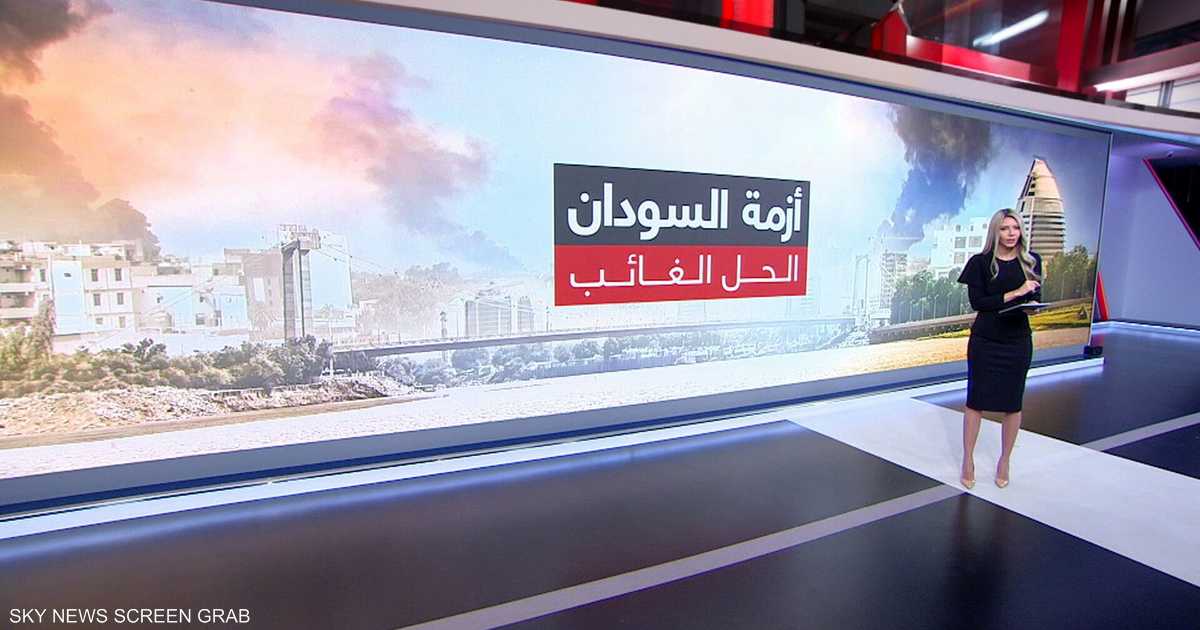The past few weeks have witnessed a frightening expansion in the scope of fighting, as the Rapid Support Forces penetrated into Al-Jazira State in the center of the country, after taking control of the strategic “Al-Ailfoun” area, located about 30 kilometers east of Khartoum, which was considered the last remaining important entrance to the capital.
Clashes also continued in the city of El Obeid, the capital of North Kordofan, and a number of areas of the Darfur region in the west of the country.
The aerial and ground bombardment continued, targeting a number of residential neighborhoods in the three cities of the capital, Khartoum, Omdurman, and Khartoum Bahri, and in the cities of El Obeid and Nyala, leading to hundreds of deaths and injuries during the past three days, according to data issued by the Sudan Doctors Syndicate, the Emergency Lawyers Authority, and the Emergency Committees.
The ongoing fighting since mid-April has caused enormous damage to the health sector in light of the widespread spread of epidemics such as malaria and dengue fever.
While about 70 percent of hospitals are completely out of service, the few operating hospitals suffer from a severe scarcity of medicines, medical aids, services and ambulances, forcing ambulance teams working in extremely dangerous security conditions to transport the injured from distant areas using primitive handcarts.
Hospitals are also suffering from a severe shortage of virus testing strips, which has led to the cessation of blood donations in some of them.
Economic contraction
Economically, the World Bank expected that Sudan’s economy would shrink by 12 percent in the current year 2023, due to the major repercussions resulting from the war that stopped the wheel of production in the capital, Khartoum, which is considered the center of economic gravity in the country, in addition to many areas in the Darfur and Kordofan regions that were also affected by the war. .
More than 400 facilities working in the food and pharmaceutical industries and various other fields in Khartoum were completely out of service after the major sabotage they were exposed to due to the chaos accompanying the fighting.
Production and agricultural projects throughout the country were also affected due to lack of funding and administrative instability.
Former Finance Minister Ibrahim Al-Badawi estimated the amount of losses inflicted on the country’s infrastructure at about $60 billion, amid expectations that losses will rise significantly as the war continues.
In an interview with Reuters last month, Al-Badawi expected that the gross domestic product would decline by about 20 percent if the war did not stop quickly.
In light of the widespread chaos that accompanied the fighting, about 100 branches of banks operating in the country were looted, burned, and completely destroyed, including large parts of the Central Bank of Sudan, which reports indicate is currently suffering from a major scarcity of cash amid reports of plans to print banknotes in the country. abroad which is very expensive.
The prices of some major food commodities have more than tripled due to the interruption of supply chains and the decline in the value of the Sudanese pound, as one dollar is currently trading at 840 pounds.
According to investors in the industrial sector, the industrial infrastructure in Khartoum, which constitutes about 70 percent of the country’s industrial sector, has been subjected to complete destruction and sabotage. In conjunction with the combat operations, hundreds of thieves and thieves spread throughout the industrial areas in the three cities of the capital and loot everything, including machines and their parts, raw materials, production stocks, and even the roofs of buildings, air conditioning and lighting equipment, in a scene that Khartoum has not seen throughout its history extending for more than 200 years.
Huge losses
- More than 80 percent of the capital’s areas are witnessing a significant scarcity of electricity and water supplies after the fighting destroyed many major facilities and networks. Many areas of the capital are still living in complete darkness, with a complete cessation of water supplies since the first week of the start of the fighting.
- Hundreds of people with chronic diseases such as kidney, diabetes, and others have died due to a severe lack of medical care and life-saving medications. In light of the increasing number of bodies dumped in the streets and those buried inside neighborhoods and backyards, specialists have warned of a major health and environmental catastrophe. The Sudanese Medical Syndicate expected a significant increase in the number of deaths due to the spread of diseases resulting from the health and environmental effects of the war.
- As the fighting continues, the scale of the horrific economic deterioration increases, especially in light of the massive destruction to the economic infrastructure and residential neighborhoods and the significant damage to the banking sector.
- Most of these neighborhoods turned into ghost towns after about 95 percent of their residents abandoned them, but the rest of those who remained in their homes were subjected to unprecedented human tragedies, as some of them died without finding anyone to bury them, and some remained under the rubble for days until the smell of their corpses wafted.
- The intense aerial and artillery bombardment led to widespread destruction affecting 60 percent of vital areas in the capital, including the presidential palace, parts of the Army General Command, a number of museums and historical buildings, and a number of ministries and governmental and private bodies, some of which burned completely.
- About 15 million students have stopped studying at various educational levels, including about a million students in 155 universities and specialized colleges, 60 percent of which are located in the capital, and more than 70 percent of governmental and private schools, universities, institutes, and higher specialized colleges in Khartoum were completely or partially vandalized. .
#year #fighting #Sudan.. #thousands #deaths #major #losses
